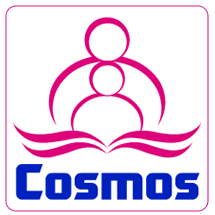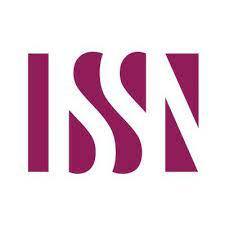Role of Peer Learning in Enhancing Academic Achievement of Students at University Level
DOI:
https://doi.org/10.5281/ijete.v1i2.30Keywords:
learning, peer learning, academic achievementAbstract
This study was conducted to find out the role of peer learning in enhancing the academic achievement of students at the university level. This study was descriptive in nature and a survey method was used for the collection of data. The population of the study consisted of three hundred (300) students of department education, Arid Agriculture University Rawalpindi. The researcher selected a universal sampling technique for the selection of the sample. The researcher constructed a five-point Likert-scale questionnaire as a research tool for this study. Data were collected by personal visits of the researcher. The collected data were analyzed through SPSS by using a mean score. It is concluded that peer learning helps students understand subject matter, identify areas for improvement, and help with difficult topics. It is recommended that teachers use different peer learning strategies in the classroom. Teachers may utilize peer support groups, collaborative projects, and group work.
Downloads
References
Adams, B., & Kaczmarczyk, A. B. (2023). Supporting Preservice Teacher Development of Culturally Responsive Reading Instruction Through a Cross-Course Assignment. Reading Horizons: A Journal of Literacy and Language Arts, 62(1), 3.
Adarkwah, M. A. (2021). “I’m not against online teaching, but what about us?”: ICT in Ghana post Covid-19. Education and information technologies, 26(2), 1665-1685.
Alam, A. J. E. T. (2022). "Mapping a sustainable future through conceptualization of transformative learning framework, education for sustainable development, critical reflection, and responsible citizenship: an exploration of pedagogies for twenty-first century learning." 107(1): 9827.
Alhadabi, A., & Karpinski, A. C. (2020). Grit, self-efficacy, achievement orientation goals, and academic performance in University students. International Journal of Adolescence and Youth, 25(1), 519-535.
Bagheri, A., Chitsazan, H., & Ebrahimi, A. (2019). Crowdfunding motivations: A focus on donors' perspectives. Technological Forecasting and Social Change, 146, 218-232. Duraku, Z. H., & Hoxha, L. (2020).
Bakare, J., & Orji, C. T. (2019). Effects of reciprocal peer tutoring and direct learning environment on sophomores’ academic achievement in electronic and computer fundamentals. Education and Information Technologies, 24(2), 1035-1055.
Beneroso, D., & Robinson, J. (2022). Online project-based learning in engineering design: Supporting the acquisition of design skills. Education for Chemical Engineers, 38, 38-47.
Bond, H. L. (2023). Nicholas of Cusa and the Reconstruction of Theology: the Centrality of Christology in the Coincidence of Opposites. In Reform, Representation and Theology in Nicholas of Cusa and His Age (pp. 227-240). Routledge.
Case, A., & Deaton, A. (2021). Life expectancy in adulthood is falling for those without a BA degree, but as educational gaps have widened, racial gaps have narrowed. Proceedings of the National Academy of Sciences, 118(11), e2024777118.
Chen, W., & Yu, S. (2019). A longitudinal case study of changes in students’ attitudes, participation, and learning in collaborative writing. System, 82, 83-96.
Dao, P. (2020). Effect of interaction strategy instruction on learner engagement in peer interaction. System, 91, 102244.
Drigas, A., Mitsea, E., & Skianis, C. (2022). Clinical Hypnosis & VR, Subconscious Restructuring-Brain Rewiring & the Entanglement with the 8 Pillars of Metacognition X 8 Layers of Consciousness X 8 Intelligences. International Journal of Online & Biomedical Engineering, 18(1).
Duraku, Z. H., & Hoxha, L. (2020). The impact of COVID-19 on education and on the well-being of teachers, parents, and students: Challenges related to remote (online) learning and opportunities for advancing the quality of education. Manuscript submitted for publication]. Faculty of Philosophy, University of Prishtina..
Ehsan, N., Vida, S., & Mehdi, N. (2019). The impact of cooperative learning on developing speaking ability and motivation toward learning English. Journal of language and education, 5(3 (19)), 83-101.
Fan, X. J. F. i. P. (2022). "The development of EFL Learners’ willingness to communicate and self-efficacy: The role of flipped learning approach with the use of social media." 13: 1001283.
Fasya Asmara, K. (2023). The Implementation of Peer Assisted Learning Strategy In Teaching Reading Comprehansion Skill on Eight Grade Student's of SMPN 2 PAKEM BONDOWOSO (Doctoral dissertation, UIN KHAS JEMBER).
Guallasamin Simbaña, S. P. (2023). Plataformas virtuales infantiles para el desarrollo de la producción escrita del idioma inglés (Bachelor's thesis, Quito: UCE).
Gurbanov, M., & Amirkulova, A. A. (2023). PEER TEACHING IN PRACTICE: ADVANTAGEOUS ADVENTURE. Мировая наука, (4 (73)), 13-18.
Kheirzadeh, S., & Birgani, M. B. (2018). Exploring the effectiveness of blended learning in improving reading comprehension among Iranian EFL students. Journal of Applied Linguistics and language research, 5(1), 106-120.
Koul, S., & Nayar, B. (2021). The holistic learning educational ecosystem: A classroom 4.0 perspective. Higher Education Quarterly, 75(1), 98-112
Lazareanu, C. G., & Apetrăcheoae, A. (2023). Dimensions of subject knowledge and their perceived significance for teachers in Romania. Education Sciences, 13(7), 713.
Loh, R. C.-Y., et al. (2020). "Unravelling Cooperative Learning in Higher Education: A Review of Research." 5(2): 22-39.
MacCann, C., et al. (2020). "Emotional intelligence predicts academic performance: A meta-analysis." 146(2): 150.
Markowski, M., et al. (2021). "Peer learning and collaborative placement models in health care: a systematic review and qualitative synthesis of the literature." 30(11-12): 1519-1541.
Mimrot, B. H. (2016). A study of academic achievement relation to home environment of secondary school students. The International Journal of Indian Psychology, 4(1), 30-40.
Namoun, A. and A. J. A. S. Alshanqiti (2020). "Predicting student performance using data mining and learning analytics techniques: A systematic literature review." 11(1): 237.
Oliverio, S. (2022). Subjectification and Existentialism in Contemporary Educational Theory. Teoría de la Educación. Revista Interuniversitaria, 34(1), 11-32.
Ouyang, F., et al. (2021). "In-service teachers’ knowledge building during face-to-face collaborative learning." 107: 103479.
Peacock, S., & Cowan, J. (2019). Promoting sense of belonging in online learning communities of inquiry in accredited courses. Online Learning, 23(2), 67-81.
Qodir, A. (2023). Similarity The Influence of Methods of Teaching on Students’ Skills of language Performance at Islamic Higher Education in Kalimantan.
Ramu, V., Taib, N., & Massoomeh, H. M. (2022). Informal academic learning space preferences of tertiary education learners. Journal of Facilities Management, 20(5), 679-695.
Salam, M., & Farooq, M. S. (2020). Does sociability quality of web-based collaborative learning information system influence students’ satisfaction and system usage?. International Journal of Educational Technology in Higher Education, 17(1), 1-39.
Salmons, J., & Wilson, L. A. (2019). Learning to collaborate, collaborating to learn: Engaging students in the classroom and online. Routledge.
Wahono, B., Lin, P. L., & Chang, C. Y. (2020). Evidence of STEM enactment effectiveness in Asian student learning outcomes. International Journal of STEM Education, 7, 1-18.
Wang, J. (2023). Chinese parental academic socialization prior to college entrance examination: Insights from urban and rural areas. Journal of Family Studies, 29(1), 389-406.
Yates, A., Starkey, L., Egerton, B., & Flueggen, F. (2021). High school students’ experience of online learning during Covid-19: the influence of technology and pedagogy. Technology, Pedagogy and Education, 30(1), 59-73.
Zhang, Y., & Maconochie, M. (2022). A meta-analysis of peer-assisted learning on examination performance in clinical knowledge and skills education. BMC Medical Education, 22(1), 147.
Downloads
Published
How to Cite
Issue
Section
License
This is an Open Access article distributed under the term of the Creative Commons Attribution 4.0 International licenses permitting all use, distribution and reproduction in any medium provided the work is properly cited.

























